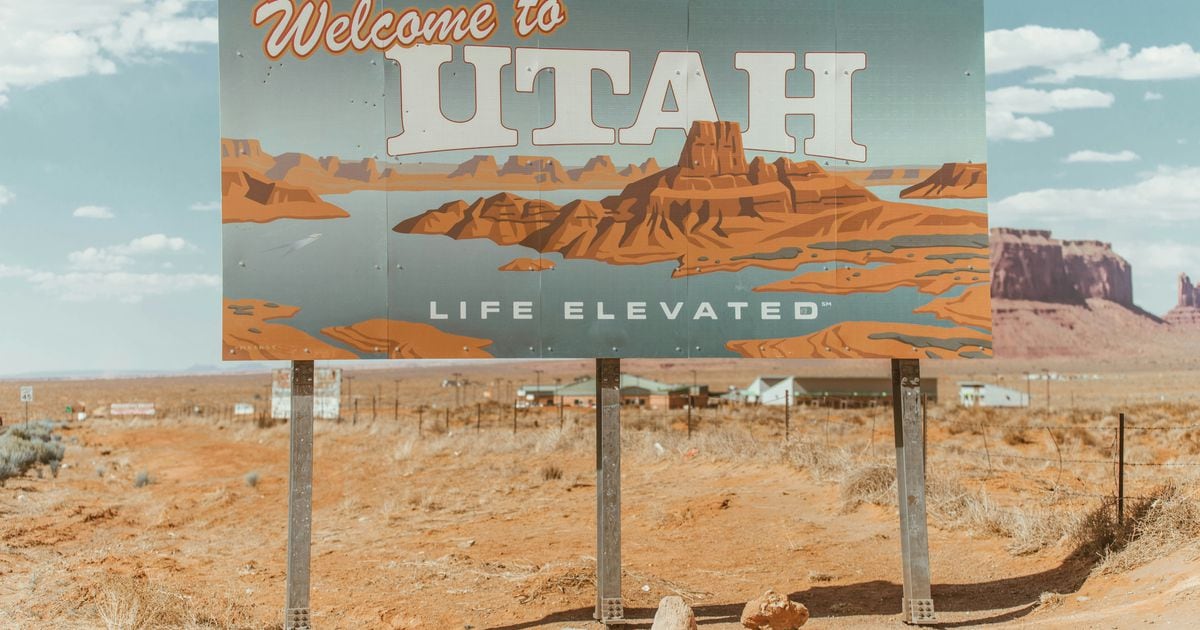
Utah is renowned for its stringent gambling laws, which are against most forms of gambling, a stance deeply ingrained in its cultural and religious history. The Church of Jesus Christ of Latter-day Saints (LDS Church) wields substantial influence in the region, vehemently opposing gambling due to its perceived incompatibility with religious teachings.
The state currently has a complete prohibition on legalized gambling, encompassing casinos, lotteries, and pari-mutuel betting. However, the landscape of gambling laws is dynamic and may be subject to change in the future, driven by societal attitudes, economic considerations, and shifts in political perspectives.
The Current Gambling Landscape in Utah
Utah’s constitution unequivocally bans all forms of gambling. Article VI, Section 27 of the Utah Constitution states: “The Legislature shall not authorize any game of chance, lottery or gift enterprise under any pretense or for any purpose.” This constitutional provision, coupled with a strong anti-gambling sentiment, creates an environment where attempts to legalize or expand gambling face significant hurdles.
Utah residents seeking legal gambling activities must travel to neighboring states where such activities are permitted, or opt for offshore online platforms from within the state. When researching offshore casino choices, discerning players often gravitate toward the reliability and excellence of the best slots casinos. These establishments promise a diverse array of games within a reputable and secure gaming environment.
Influential Factors in Utah’s Gambling Laws
Religious Influence:
The LDS Church holds a central position in shaping Utah’s cultural and political outlook. Its teachings, expressly disapproving of gambling, have significantly contributed to the enduring resistance within the state towards legalizing such activities.
The influence of the church is deeply ingrained in the historical fabric of Utah, creating a robust foundation for the prevailing stance against embracing various forms of gambling. In fact, nearly 42% of everyone living in Utah are part of the LDS church. As the spiritual compass for many residents, the LDS Church’s advocacy against gambling extends beyond individual beliefs, permeating societal norms and policies. The church’s stance acts as a moral cornerstone, anchoring Utah’s collective ethos and influencing the ongoing discourse around potential changes to gambling laws.
Economic Considerations:
While Utah remains steadfast in its anti-gambling stance, neighboring states continue to reap the economic benefits of legalized gambling. The contrasting approaches in the region fuel ongoing discussions about the potential economic advantages Utah could harness by reconsidering its stance. Economic factors, especially during challenging times, may prompt a reevaluation of the state’s position. The allure of additional revenue streams from certain forms of legalized gambling could spark debates among policymakers, prompting a careful examination of the economic landscape and potential fiscal advantages for the state.
Changing Demographics:
Utah’s demographic landscape is undergoing transformation with an influx of new residents, potentially heralding subtle shifts in public opinion regarding gambling. As younger generations become a more significant demographic force, their distinct perspectives on gambling may diverge from the traditional viewpoints held by older generations.
This generational contrast is pivotal in shaping the evolving narrative around gambling in the state. As attitudes naturally evolve over time, the influence of a more diverse and dynamic demographic could introduce nuanced considerations into future discussions on the topic, fostering a broader spectrum of opinions within the Utah community.
Tourism Industry Impact:
Utah’s flourishing tourism sector revolves around its natural wonders and outdoor pursuits. The state has historically attracted tourists without relying on gambling-related activities. However, ongoing debates may surface regarding the potential benefits of introducing specific forms of gambling to augment the tourism industry. Discussions may revolve around whether diversifying entertainment options could attract a different demographic of tourists, offering a complementary dimension to Utah’s tourism landscape without compromising its focus on nature-centric attractions.
Historical Attempts to Change Gambling Laws
Despite historical resistance to gambling, there have been occasional attempts to revisit Utah’s gambling laws. These attempts, however, faced significant challenges due to deeply ingrained cultural and religious opposition.
Past proposals included discussions about allowing a state lottery or permitting specific forms of gambling in certain circumstances. However, these proposals encountered strong opposition from various groups, including religious organizations and lawmakers adhering to the existing anti-gambling sentiment.
Potential Future Scenarios
While predicting the future of Utah’s gambling laws is challenging, several scenarios could unfold:
Maintaining the Status Quo:
Utah may uphold its current gambling laws, strictly prohibiting all forms of gambling. The state may prioritize its cultural and religious values over potential economic benefits associated with legalized gambling.
Incremental Changes:
Discussions could emerge about making incremental changes to Utah’s gambling laws. This might involve allowing limited forms of gambling, such as a state lottery or specific charitable gaming events. Proposed changes would likely be subject to rigorous scrutiny and public debate.
Shift in Public Opinion:
Over time, a gradual shift in public opinion regarding gambling may occur. This shift could be driven by changing demographics, economic considerations, or a reevaluation of the role of gambling in the state. A significant change in public sentiment might lead to more open discussions about potential revisions to existing laws.
Economic Pressures:
Economic pressures could prompt discussions about alternative revenue sources. Faced with economic challenges, policymakers might reconsider the potential financial benefits of legalized gambling.
However, as of now, Utah’s gambling laws remain steadfast in their prohibition of most forms of gambling. The state’s unique cultural and religious landscape has been a defining factor in shaping and preserving this stance. While discussions about changing these laws have occurred in the past, any significant shifts would likely be a result of careful consideration of economic, cultural, and demographic factors.
Predicting the future of Utah’s gambling laws is speculative, and any changes would likely be a product of nuanced discussions, potential shifts in public opinion, and a careful balancing of competing interests. The state’s commitment to its values and the influence of the LDS Church will likely continue to play a pivotal role in shaping the trajectory of gambling laws in Utah.